SEGGER J-Link EDU Mini - JTAG/SWD Debugger
Retired Product
Replaced by: PGM-15345This product is no longer available. This page is only for reference.
Doing some serious development on any ARM-based platform, and tired of 'printf' plus an LED to debug? A proper JTAG/SWD HW debugger can make debugging more of a pleasure and less of a pain. It allows you to program your devices at the click of a button, read or write memory addresses or registers on a live system, temporarily halt program execution at a given location or condition, and much more. Essentially, it's a direct window into what's going on inside your MCU at any given moment, giving you a level of access and control that's not easy to replicate with other debugging methods.
The J-LINK EDU Mini is a version of the J-Link EDU in a reduced form factor (18mm x 50mm – like a USB stick!) with identical functionality for Cortex-M based targets. Adafruit really love J-Links for programming Adafruit's Cortex chips, they're durable and support every microcontroller Adafruit have bumped into. They're also often supported within the IDE's for chips for native debugging (e.g. Atmel Studio for when Adafruit are doing Adafruit's ATSAMD development). The new Mini is bare-bones and very affordable! It is designed to allow students and educational facilities as well as hobbyists access to top of the line debug probe technology. It can do just about everything the 'big sister' J-Link EDU can do:
- Unlimited Breakpoints - The unlimited breakpoints in flash memory feature can be used free of charge for evaluation. The evaluation period is not time limited. For commercial use a separate license is required.
- Free Software Updates - As a legitimate owner of a SEGGER J-Link, you can always download the latest software free of charge. Though not planned and not likely, Adafruit reserve the right to change this policy. Note that older models may not be supported by newer versions of the software. Typically, Adafruit support older models with new software at least 3 years after end of life.
- Supports concurrent access to CPU by multiple applications - J-Link allows multiple applications to access a CPU at the same time. This has numerous applications. J-Link commander can be used in parallel to a debugger, a tool to communicate via DCC can be used in parallel to a debugger or a visualization tool such as Micrium's u/C-Probe or SEGGER's kernel viewer embOSView.
- Cross-platform support - Runs on Windows, Linux, Mac OS X. The MAC and Linux versions are fully usable, but limited to the following components: J-Link Commander, command line GDBServer, shared library (DLL-equivalent)
- Licensing and Support : J-Link EDU Mini may only be used for non-commercial purposes. J-Link EDU Mini does not include support. (However you may submit your question to the SEGGER Forum)
You may use the J-Link EDU for non profit educational purposes only! Non-profit educational purposes means that you may not use the J-Link EDU and its J-Link software.
- direct or indirect in or for a profit organization or business purposes or other undertaking intended for profit
- direct or indirect in any other commercial environment (e.g. office)
- to develop, debug, program or manufacturer a commercial product (or parts thereof)
- to use it to either earn money or reasonably anticipate the receipt of monetary gain from it.
What does this mean? Basically, if you're making money (or plan to make money) off your project, you'll need to order the full commercial version, or find a different debugger that suits your needs and budget better. But if you're working on personal, non-commercial projects, such as publishing some open source designs you're not selling yourself, you're good. You don't need to be a student, and you can even be a paid engineer during the week, using this on the weekend for personal non-commercial projects. As long are your intentions are non-commercial, the J-Link EDU is an excellent choice!
If you're going to use your debugger strictly for education or personal, non-commercial projects, such as publishing open source designs that you're not selling, then you should get this EDU Mini (or the standard EDU) version!
More about why Adafruit like J-Link!
Of the dozens (and dozens!) of debuggers out there (we have literally drawers full of them!), Adafruit chose the J-Link for a number of reasons:
- It's USB based and uses a high-speed MCU internally, not an FTDI convertor like most low cost debugger. More debugging, less waiting!
- It's toolchain, IDE and vendor neutral, so you only need to buy one tool for all of your ARM needs and be done with it forever:
- Support GDB-based debugging and flash programming on Linux, Windows and the Mac via the free GDB Server
- Supports most major IDEs, including Keil, IAR Atmel Studio, Crossworks for ARM
- It includes flash-programming algorithms for most MCUs, and Segger is very pro-active about updating their drivers to support the newest chipsets.
- It just works, and keeps on working, and it'll be there for you in several years time.
The J-Link is fast. Stepping through breakpoints and reading memory addresses is quick, as is programming the flash memory on the chips. It's real strength, though, is that it's so vendor and tool neutral. Most chip vendors today provde low cost (or free) tools, but they also lock you into their chips and force you to accept the choice they've made for you. Segger's J-Link is a nice change in that respect, since you can be reasonably certain it will work with any chip, in any major toolchain, and you're free to change camp (or OS or IDE) without having to buy a new debugger every time.
Why Would I Want This?
You can do a lot of basic debugging with just printf and an LED, and you may not need a HW debugger to get started, but once you start to working on more complicated projects, you hit a debugging wall pretty quickly.
Your chip might be ending up in the HardFault handler, for example, but without a debugger it can be very hard to trace back exactly what is causing the problems. A debugger allows you to set 'breakpoints' in your code, where execution will temporarily stop, and you can check the value of memory or peripherals at that point in time, and then 'single-step' through your code line by line, executing your program until you find the place that causes your fault. There's a lot more to debugging than simple breakpoints, but you can often solve in a few minutes with breakpoints what would take much longer with printf and instrusive blocking mechanisms you insert into your code without a debugger.
Whether you're using GDB Server (GNU Tools) or an IDE and a commercial toolchain, it's also just a big convenience, since the J-Link can program the flash for you at the click of a button, reset the device, start execution, and then 'halt' on main(). You can do all these steps yourself -- programming the device via free tools over UART or via a USB bootloader, etc. -- but when you need to do that 40-50 times a day, it can get old quick, and 15 seconds saved make a huge difference when debugging. You can program a small MCU and break on main in 2-3 seconds with a J-Link, which makes the tools more or less invisible, which is a good thing when you have other problems to worry about.
Technical Details
J-Link EDU Mini is delivered with the following components:
- J-Link EDU Mini with standard 10-pin 0.1" male connector (compatible to J-Link)
- 20-pin, 0.1" target ribbon cable
- Debugger weight: 4.8g
- Debugger dimensions: 51mm x 17.25mm x 7.5mm
- Cable length: 6"
For product support for all Segger products, click here!
Exact shipping can be calculated on the view cart page (no login required).
Products that weigh more than 0.5 KG may cost more than what's shown (for example, test equipment, machines, >500mL liquids, etc).
We deliver Australia-wide with these options (depends on the final destination - you can get a quote on the view cart page):
- $3+ for Stamped Mail (typically 10+ business days, not tracked, only available on selected small items)
- $7+ for Standard Post (typically 6+ business days, tracked)
- $11+ for Express Post (typically 2+ business days, tracked)
- Pickup - Free! Only available to customers who live in the Newcastle region (must order online and only pickup after we email to notify you the order is ready). Orders placed after 2PM may not be ready until the following business day.
Non-metro addresses in WA, NT, SA & TAS can take 2+ days in addition to the above information.
Some batteries (such as LiPo) can't be shipped by Air. During checkout, Express Post and International Methods will not be an option if you have that type of battery in your shopping cart.
International Orders - the following rates are for New Zealand and will vary for other countries:
- $12+ for Pack and Track (3+ days, tracked)
- $16+ for Express International (2-5 days, tracked)
If you order lots of gear, the postage amount will increase based on the weight of your order.
Our physical address (here's a PDF which includes other key business details):
40 Aruma Place
Cardiff
NSW, 2285
Australia
Take a look at our customer service page if you have other questions such as "do we do purchase orders" (yes!) or "are prices GST inclusive" (yes they are!). We're here to help - get in touch with us to talk shop.
Have a product question? We're here to help!
Guides
The Maker Revolution
Projects
Pico-Dog Motion Activated Audio Alarm
WaveJumper: Music Sample Slicer on a Breadboard
10" Home Lab Testing Rack
Makers love reviews as much as you do, please follow this link to review the products you have purchased.

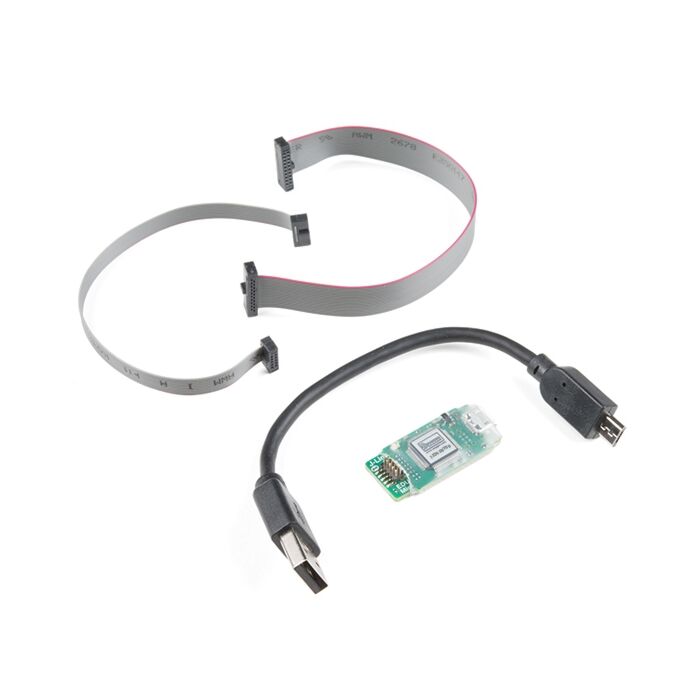

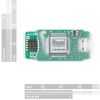
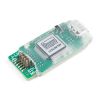

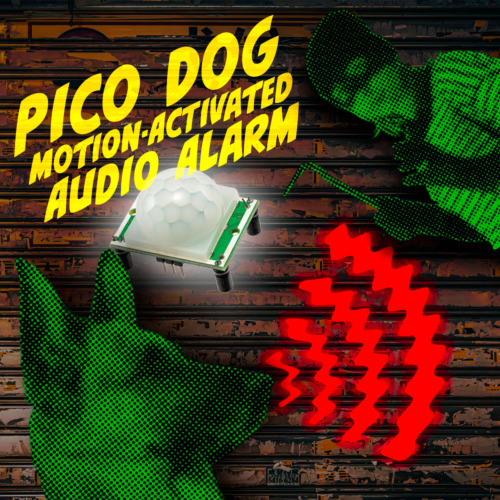
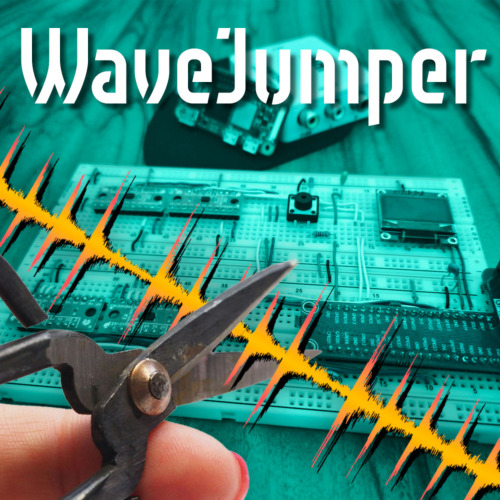
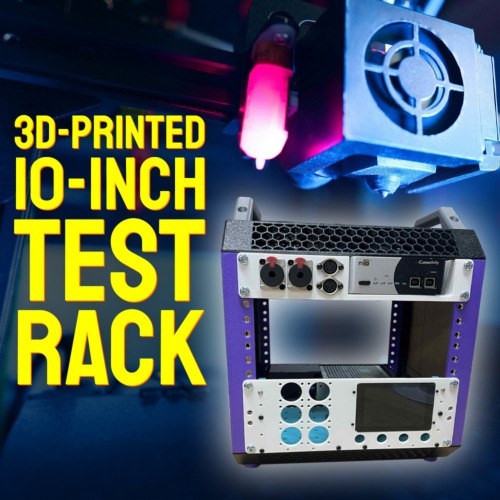

Product Comments